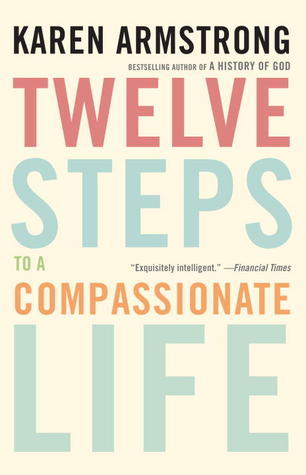What do you think?
Rate this book


240 pages, Paperback
First published January 1, 2010
Each of the world religions has its own particular genius, its own special insight into the nature and requirements of compassion, and has something unique to teach us. By making room in your mind for other traditions, you are beginning to appreciate what many human beings, whatever their culture and beliefs, hold in common.
یک انسان واقعاً مشفق زخمهای را بر تار دل ما مینوازد که آکنده از طنین برخی از عمیقترین آرزوهای ماست. مردم گرد چنین شخصی جمع میشوند چرا که به نظر میرسد در جهانی پر از خشونت و خشم، مٲمنی از آرامش در اختیار ما قرار میدهد. این کمال مطلوب و آرمانی است که ما آرزویش را داریم و دستیابی به آن از ظرفیت ما خارج نیست. اما حتی اگر به کسری از این روشنیافتگی دست یابیم و اندکی دنیا را ترک گوییم. میتوانیم ادعا کنیم زندگیمان ارزشمند بوده است.